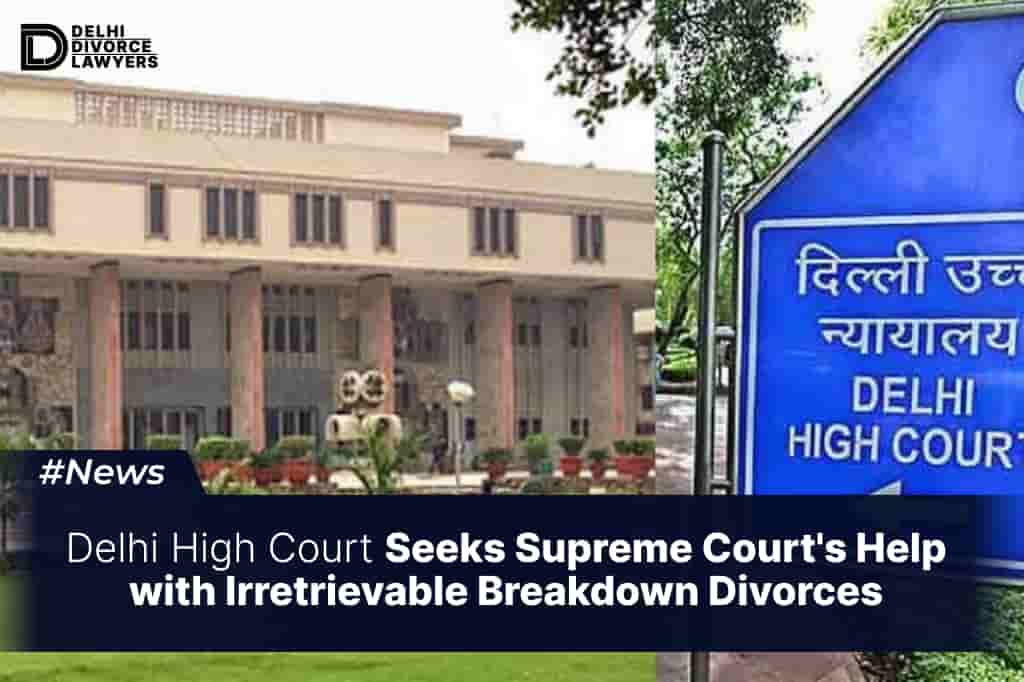The Delhi High Court has unambiguously affirmed that the exclusive jurisdiction to grant divorces predicated on the grounds of irretrievable breakdown of a marriage is vested in the Supreme Court, in accordance with the provisions of Article 142 of the Indian Constitution.
In a pertinent legal matter wherein the spouse, acting as the appellant, contested a divorce decree pronounced by the Family Court under Section 13(1)(i-a) of the Hindu Marriage Act, 1955, the Court diligently scrutinized the evidentiary material submitted by the husband. Following a comprehensive assessment guided by the principles of preponderance of probabilities, the court definitively determined that the husband’s allegations of cruelty on the part of his spouse were inadequately substantiated.
The bench, comprising Justice Sanjeev Sachdeva and Justice Manoj Jain, emphatically underscored that the authority to grant a divorce grounded in the irretrievable breakdown of a marriage is exclusively vested in the Supreme Court, pursuant to Article 142 of the Constitution of India. This prerogative is not extended to the High Courts or Family Courts, and thus remains within the purview of the Supreme Court’s jurisdiction.
The Bench noted, “No parallel can be drawn from said judgment by the respondent in view of distinguishing facts of the present case. Moreover, as already noted, the power to dissolve marriage on account of “irretrievable breakdown‟ vests with the Supreme Court only, which also cannot be sought by any of the parties as a matter of right”.
The Appellant, identified as the Wife, has invoked the jurisdiction of this Court to challenge the ruling rendered by the Family Court, which granted her husband’s petition for divorce pursuant to Section 13(1)(i-a) of the Hindu Marriage Act (HMA).
In its deliberation, this Court acknowledges the absence of a statutorily defined construct for the term “cruelty” as prescribed in Section 13(1)(i-a) of the HMA. This statutory lacuna introduces an inherent complexity in the adjudication of the precise nature of cruelty. It is imperative to elucidate that cruelty encompasses both the realms of physical and psychological harm, whether these facets are manifested separately or in tandem. While the evidentiary substantiation of physical cruelty is amenable to concrete proof, the assessment of mental cruelty is inherently subjective and challenges the prospects of quantitative evaluation. This Court underscores that the determination of mental cruelty necessitates a comprehensive analysis of an array of interrelated factors unique to the circumstances of each case.
Furthermore, this Court makes reference to a pertinent precedent established by the Supreme Court in the matter of Samar Ghosh v. Jaya Ghosh, 2007, which emphasizes the absence of a universally applicable standard for the ascertainment of cruelty. The delineation of cruelty is contingent upon the diligent scrutiny of the particular facts characterizing each individual case.
It is imperative to highlight that the husband’s allegations of cruelty by the wife were found to lack substantiated evidence. This conclusion is predicated on two principal grounds. Firstly, the husband sought the appointment of a local commissioner to verify the operation of a coaching center by his wife; however, he failed to furnish compelling evidentiary support, instead relying predominantly on oral accusations. Secondly, even in the event that one were to assume the veracity of the husband’s claim regarding his wife’s association with such an enterprise, the husband did not expound upon how such an affiliation could be construed as constituting an act of cruelty.
“Thus, the picture which emerges out is very clear. There was loss of trust, faith and affection between the parties but despite that, they both were trying hard to save the family. The husband even withdrew his case seeking restitution of conjugal rights. His mother also withdrew her one complaint”, the Court noted.
Accordingly, the Court allowed the Appeal and set aside the impugned order.

